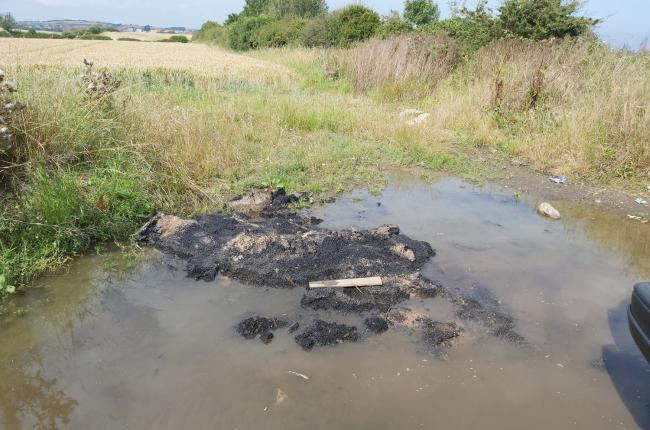
A man has been ordered to pay out £400 after he was caught on CCTV dumping tarmac next to farmland, an incident which also cost him his job.
Footage showed two men getting out of a van and leaving tarmac next to a farmer's field in County Durham in August 2020.
Thanks to CCTV footage, a council neighbourhood warden spotted the waste strewn across the entrance to the field on Petwell Lane, Easington Colliery.
The landowner had not given any permission to anyone to deposit on the land.
An investigation found the driver of the van to be George Turton, 64.
In a hearing at Peterlee Magistrates' Court he admitted a charge of depositing controlled waste otherwise than in accordance with an environmental permit.
In mitigation, Turton said he was working for a construction firm and believed that the land was council-owned.
He said he believed he could dump tarmac in unfilled holes on council land, and then return and cover them with a base coat.
But Turton accepted that he did not have this permission and the land was privately owned.
He subsequently lost his job following the incident.
Turton was fined £80 by magistrates and ordered to pay a £34 victim surcharge as well as £130 legal costs and £150 investigation costs.
Ian Hoult, County Durham's neighbourhood protection manager, said the case was a reminder that the council would always hold those who fly-tip to account.
"Businesses must make sure that they dispose of waste correctly and householders should also check that anyone who says they can take away their rubbish is registered to do so.
"There really is no excuse for fly-tipping, your waste is your responsibility," he said.
Incidents of fly-tipping on public land increased by 2% across England in 2019/2020, according to the most recent figures available by Defra.
While councils have dealt with just under 1 million fly-tipping incidents during this period, these figures account for waste illegally dumped on public land reported to these authorities.
However, the vast majority of fly-tipping incidents on privately-owned land, which are thought to be significantly more, are not included.
